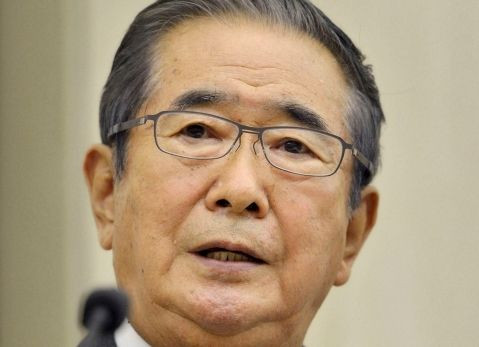Tokyo’s Nationalist Governor Ishihara Quits To Form New Party

Tokyo Governor Shintaro Ishihara Thursday announced his decision to quit the office to form a new political party ahead of the general elections in Japan.
"As of today, I will resign as the Tokyo governor," he told a press conference in Tokyo, the Associated Press reported.
The 80-year-old novelist-turned-politician whose current term as Tokyo governor began last April has been in office for nearly 14 years.
Known for his outspokenness and nationalist fervor, Ishihara played a key role in worsening the decades-long territorial tensions between China and Japan over a set of islands in the East China Sea called Senkaku Japanese and Diaoyu in Chinese.
Prior to Japanese government’s purchase of the disputed islands from its private owner Sept. 11, Ishihara had been trying to raise funds for the Tokyo metropolitan government to buy them to avoid the possibility of a rival party, such as the Chinese government, establishing ownership.
"We must change the inflexible rule of the central government bureaucrats," he said, comparing their influence to the dictatorial rule of the shogun.
"I'm returning to the national politics by forming a new party with my colleagues," he said. "What I'm trying to do is everything I've been trying to for Tokyo."
Though there were reports in the Japanese media suggesting Ishihara’s planned to float a political party to challenge the ruling Democratic Party of Japan (DPJ) and the opposition Liberal Democratic Party (LDP), to which he once belonged, the news of his resignation has come as a surprise.
Ishihara unsuccessfully contested the election seeking Tokyo's governorship in 1975 and was elected in 1999 as an independent and re-elected in 2003, 2007 and 2011.
He has been an advocate of Japan acquiring the nuclear weapons and has been a vocal critic of China, North Korea, foreigners, immigrants and women.
He has also been demanding the repeal of certain peace clauses in Japan's constitution, which restricts the activities of the country's armed forces.
His 1989 book, “The Japan that Can Say No,” and the movie he wrote in 2007, “I Go to Die For You,” are known for their ultra-nationalistic stance.
© Copyright IBTimes 2024. All rights reserved.






















